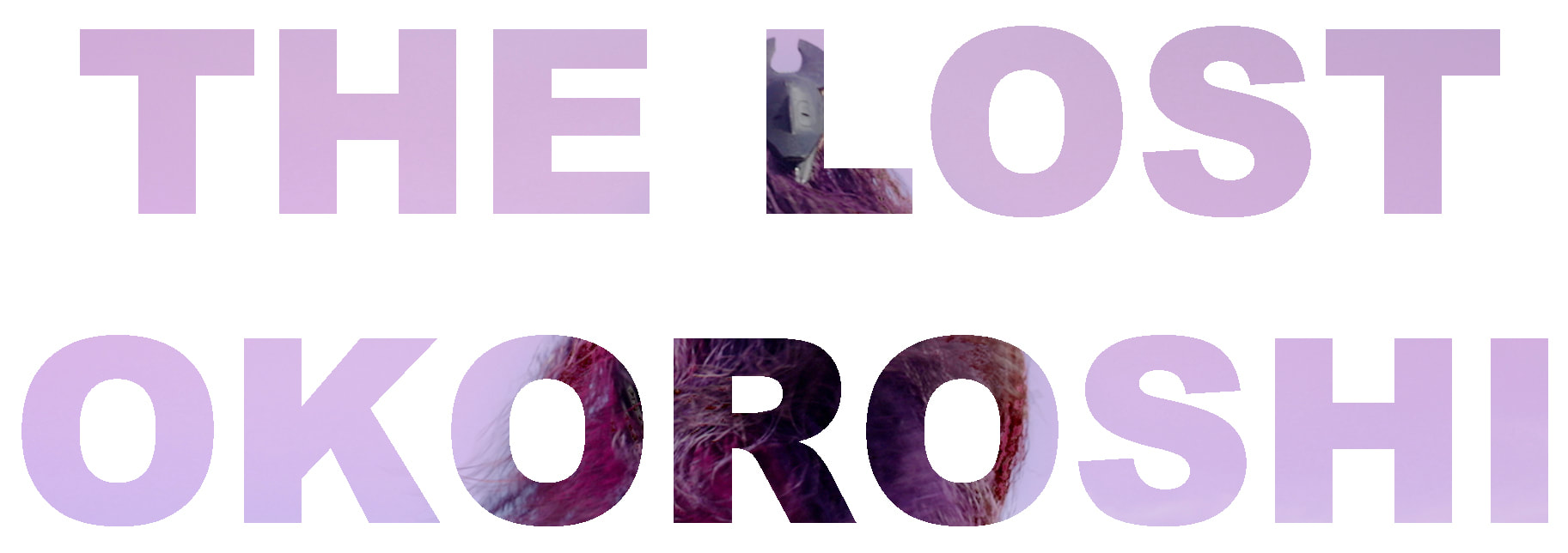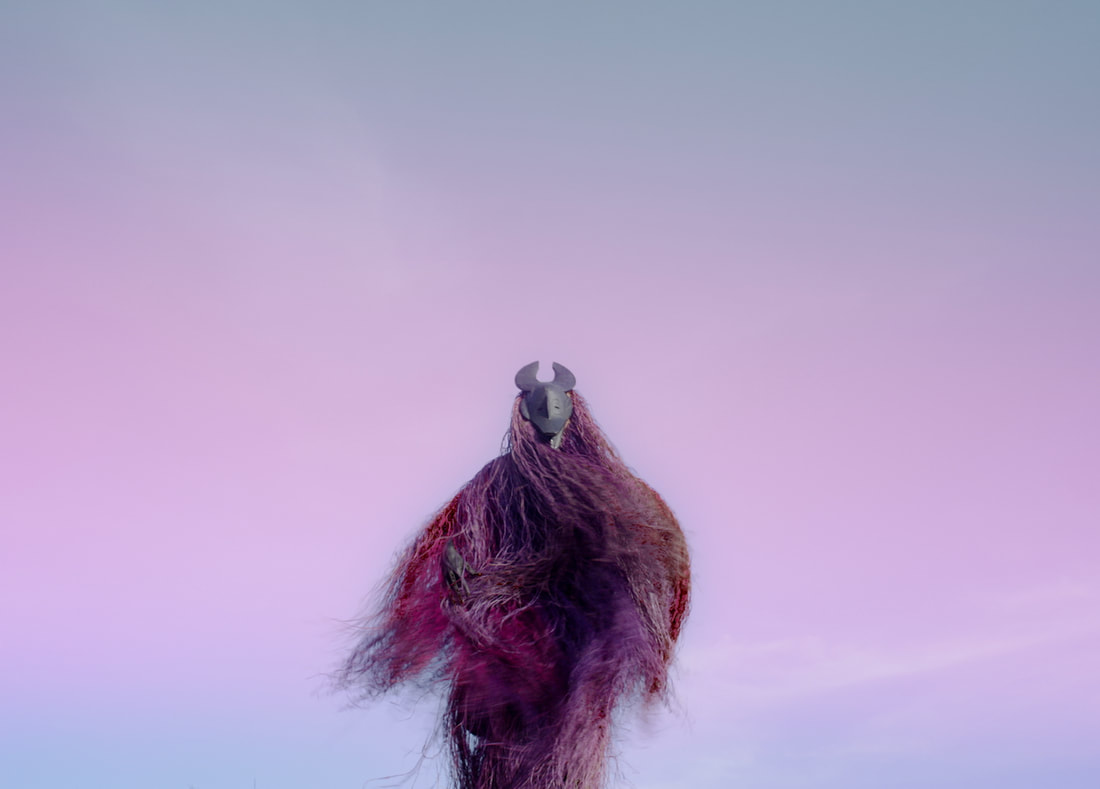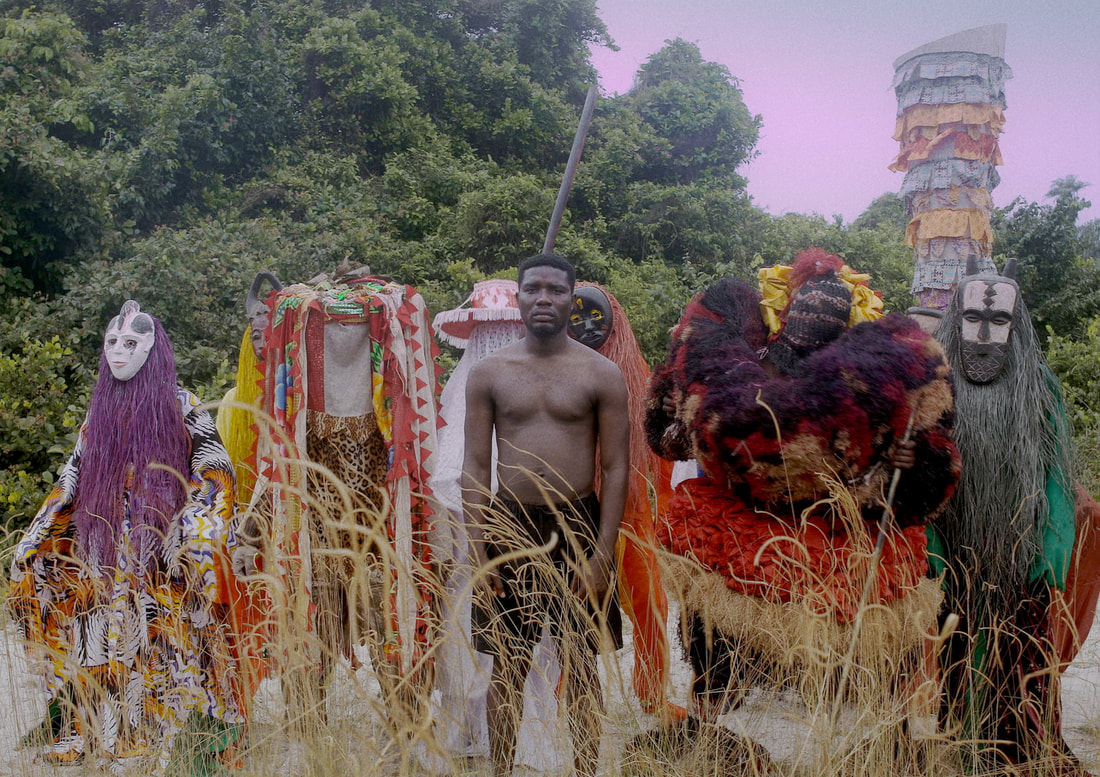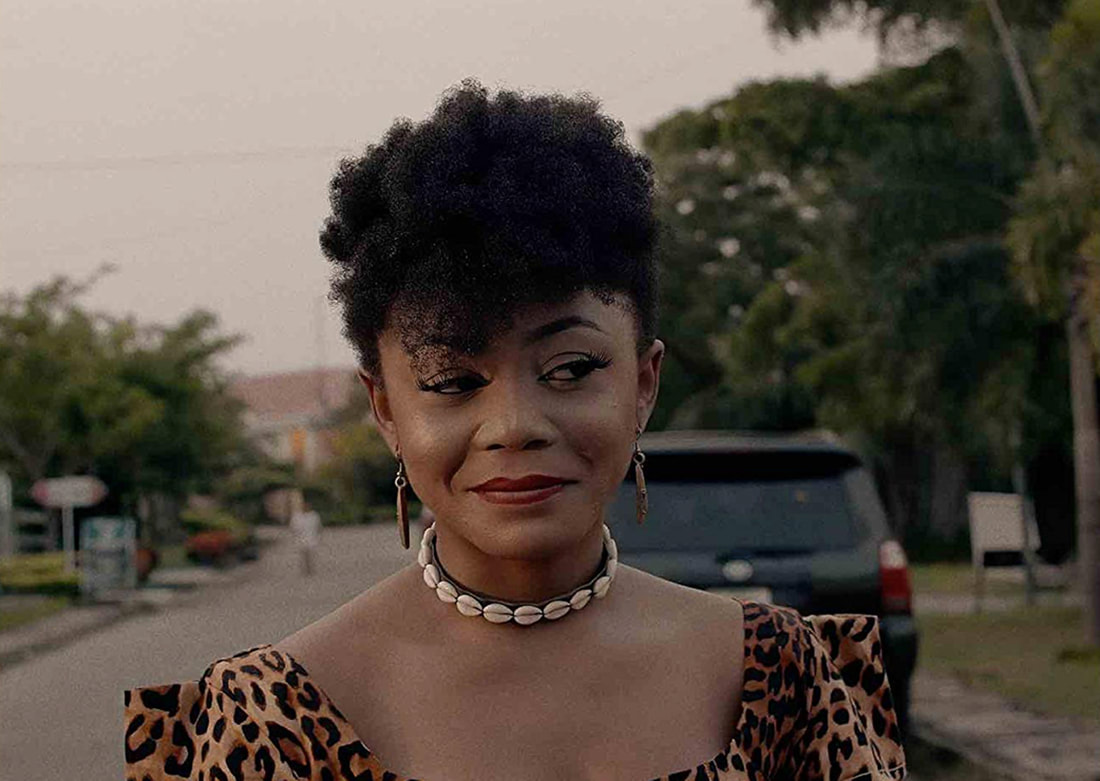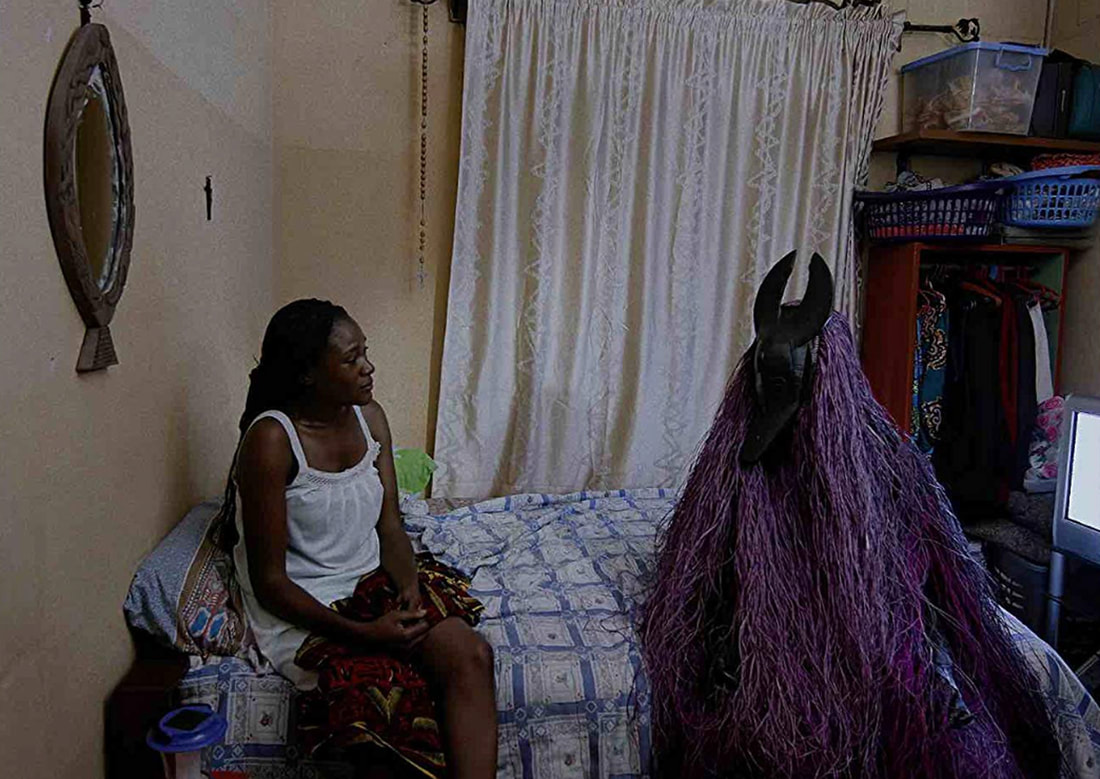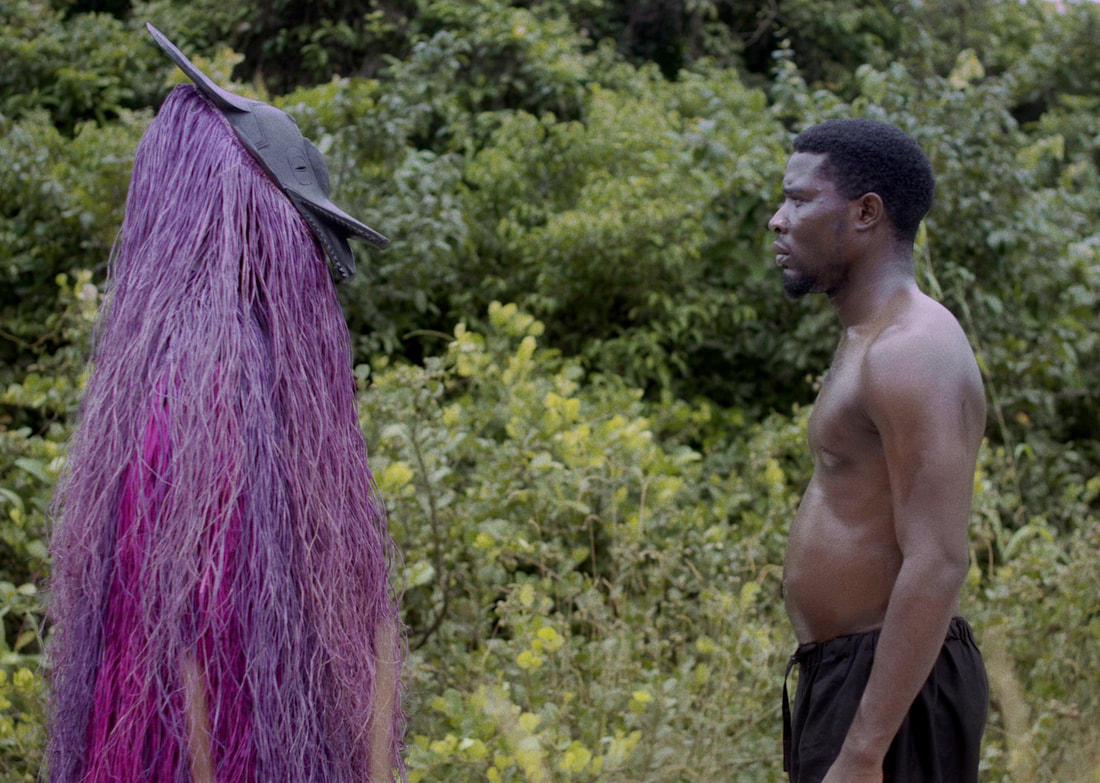|
★★★★☆
19 February 2020
A movie review of THE LOST OKOROSHI. |
D: Abba Makama (Green White Green).
S: Seun Ajayi, Judith Audu, Tope Tedela, Ifu Ennada, Chiwetalu Agu, Michael Ajotubu.
“I am tired of this job,” Raymond (Seun Ajayi)
After India, the second largest film industry in the world is Nigeria. And it is throwing out gems. This is one such. And in my list of favourite movies watched last year. Two of the country’s offerings, I have most enjoyed so far, are by the same director, this and GREEN WHITE GREEN [2016]. He and his creative teams have fashioned vibrant stories. Showing that lavishness of imagination can be portrayed without big budgets. The marshalling of resources has me applauding in admiration.
S: Seun Ajayi, Judith Audu, Tope Tedela, Ifu Ennada, Chiwetalu Agu, Michael Ajotubu.
“I am tired of this job,” Raymond (Seun Ajayi)
After India, the second largest film industry in the world is Nigeria. And it is throwing out gems. This is one such. And in my list of favourite movies watched last year. Two of the country’s offerings, I have most enjoyed so far, are by the same director, this and GREEN WHITE GREEN [2016]. He and his creative teams have fashioned vibrant stories. Showing that lavishness of imagination can be portrayed without big budgets. The marshalling of resources has me applauding in admiration.
THE LOST OKOROSHI is creative cinema concerning a crisis of the spirit and culture. A social critique wrapped in an absorbing comedy.
Bustling city Lagos, Raymond (Seun Ajayi) works as a (habitually tardy) office security guard. He passes time at the building reception by complaining, and heckling passing colleagues. He comes across as a harmless bullsh*tter. Raymond looks to be in a funk. He represents so much of humanity working unstimulating jobs. Raymond lacks purpose, which is a drain on a person’s energies.
Raymond repeatedly dreams of an Okoroshi masquerade. A neighbour explains the Okoroshi are their ancestors. One morning soon after, Raymond wakes as one of these spirits. Unable to speak, yet he begins to interact with the metropolis’s citizens. His wife attempts normalcy. She asks his boss, “Please can he come to work like this? Just this week.” There are many details to bring a grin, e.g. the neighbour’s homemade palm wine, but also to furrow the brow in empathy. Lagos is shown to be complex. It has the crime and pollution problems of so many conurbations, yet the film makes you want to see the fascinating culture for yourself.
Avoiding the dour, yet Raymond’s adventures highlight social ills and neglect. The Okoroshi spirit brings good fortune to the upright, while punishing the wicked. He teleports and freezes people too. (And is an energetic dancer.) Would it be a stretch to label him a sort of spiritual superhero? This lost Okoroshi even has a sidekick. (The story theme made me think of Pixar short, SANJAY’S SUPER TEAM [2015] that preceded THE GOOD DINOSAUR.) The title refers to the protagonist’s existential crisis, and arguably to society being lost – in terms of compassion, honour, and direction. Commentary on worker rights and universal healthcare are woven into the narrative fabric without preaching. Solutions are even suggested (which journalism and art should be offering more of), such as unique culture being used to create jobs.
Charm and ire. Humour and a social conscience. THE LOST OKOROSHI is funny, thoughtful, colourful, and full of life.

